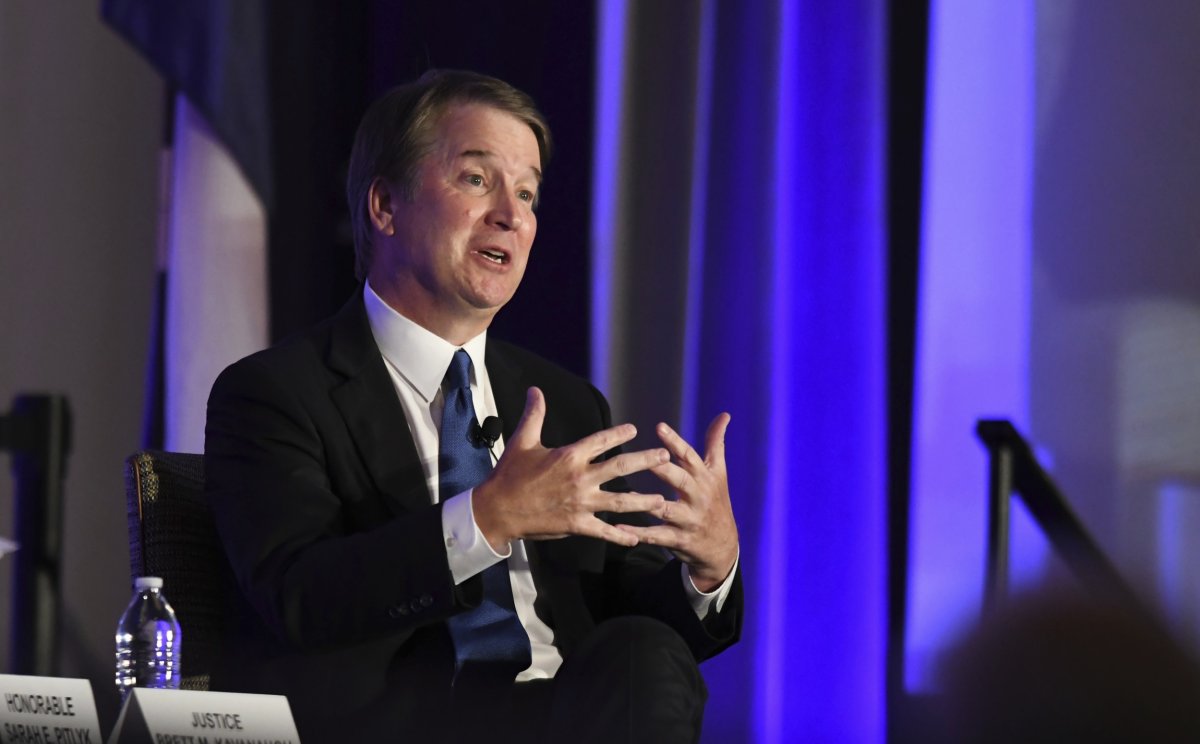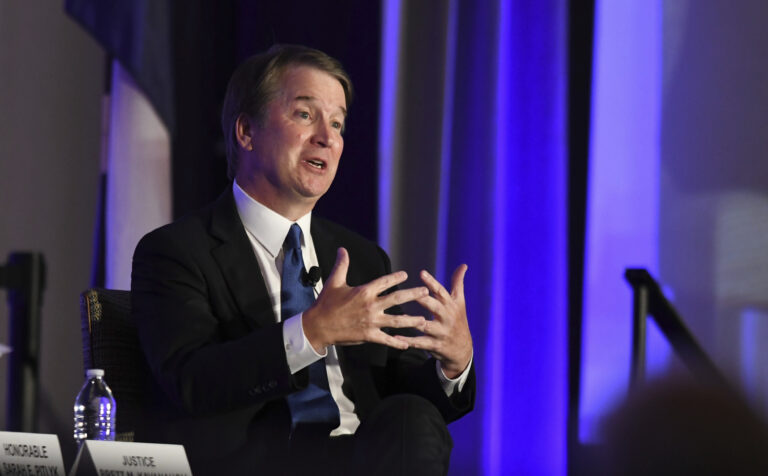Justice Brett Kavanaugh on Thursday defended the Supreme Court’s practice of not fully explaining certain decisions that have allowed the Trump administration to advance its policies.
Speaking at the Eighth Circuit Judicial Conference in Kansas City, Missouri, Kavanaugh said there can be “danger” in issuing written opinions too early in a case, particularly when the court is only weighing a party’s likelihood of success rather than the merits of the case itself.
Writing at that stage, he said, risks creating a “lock-in effect.”
“There can be a risk in writing the opinion of lock-in effect, of making a snap judgment and putting it in writing, in the written opinion, that is not going to reflect the final view,” Kavanaugh said, according to CNN.
Why It Matters
Since the start of President Donald Trump’s second term, the Supreme Court has been asked to intervene in several cases where a lower court blocked executive actions. These cases are brought on an emergency basis to the Supreme Court, which often issues its ruling without a written opinion explaining the majority’s decision.
The Court’s emergency docket, which has also been called a “shadow docket,” is separate from its merits docket.
In emergency cases, there is typically one round of briefing and no oral arguments.

Associated Press
What To Know
Kavanaugh said the Supreme Court has been “doing more and more process to try to get the right answer on those preliminary assessments.”
“We’ve been doing certainly more written opinions on the interim orders docket than we’ve done in the past,” Kavanaugh said.
Kavanaugh, who was appointed by Trump in 2018, said as a judge, “you have to recognize and have thick skin and know that criticism comes with the territory.”
At a judicial conference in California last week, Justice Elena Kagan said the Court has a responsibility to “explain things better” while working on these emergency cases.
What People Are Saying
Supreme Court Justice Brett Kavanaugh, at the Eighth Circuit Judicial Conference: “So I come to you all with great respect for…what we all do to preserve what I think is the crown jewel of our constitutional democracy, which is the independence of the judiciary.”
Supreme Court Justice Elena Kagan, at a judicial conference in California: “Courts are supposed to explain things. They’re supposed to explain things to litigants. They’re supposed to explain things to the public, generally.”
What Happens Next
The Supreme Court is currently on its summer recess. The next term will begin on October 6.
Do you have a story that Newsweek should be covering? Do you have any questions about this story? Contact LiveNews@newsweek.com.
Update 7/31/25, 3:39 p.m. ET: This article was updated with additional information.


